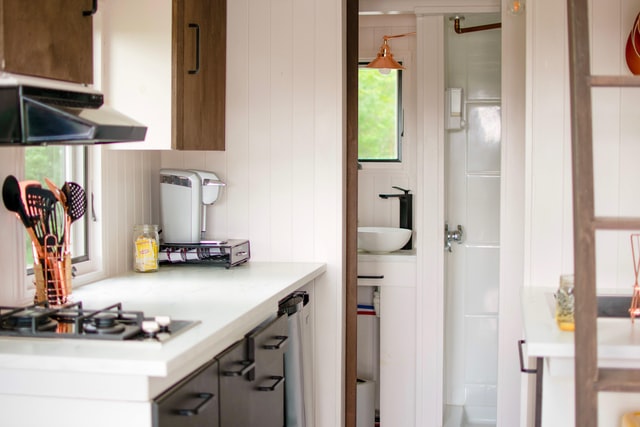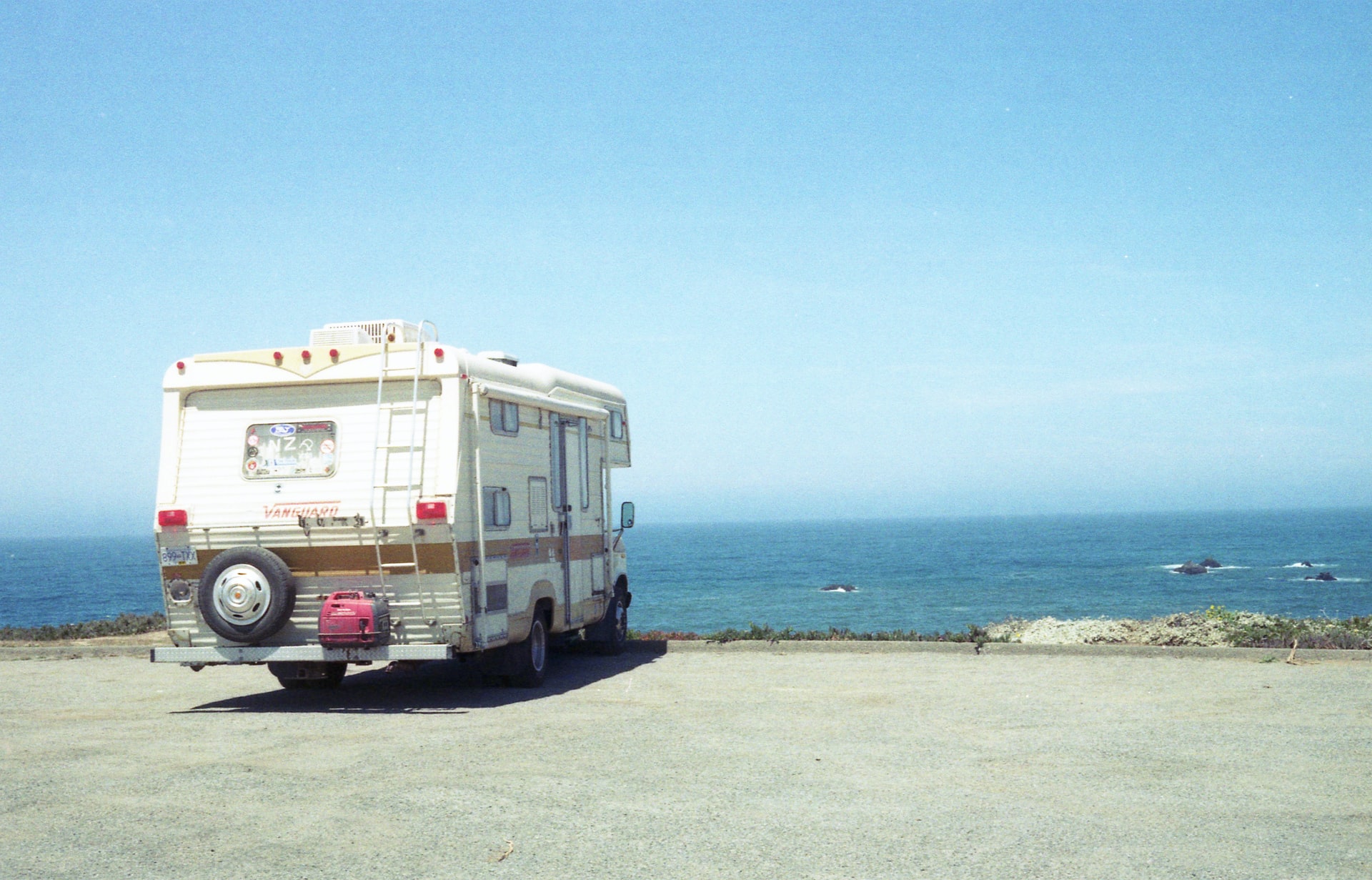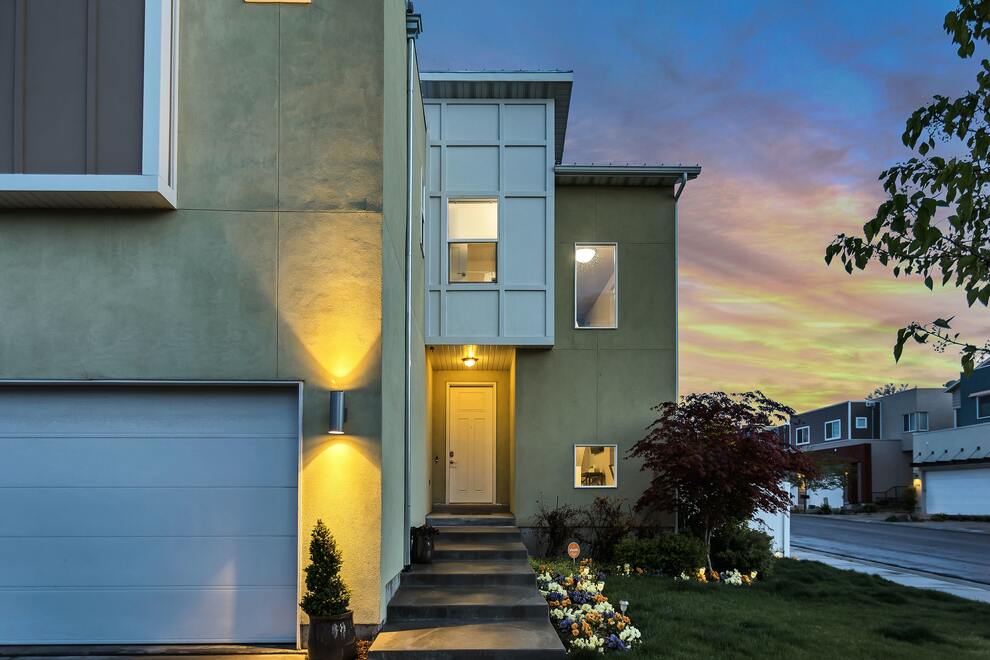Living in a completely mobile house is trending, particularly amongst millennials, nomads, and minimalists. Having a house on wheels can be a fantastic experience that allows you to travel and see the country while still enjoying the comforts of home. From a camper van or bus to an RV or a tiny house, there are plenty of things you can do to enjoy the same functionality and comforts that you’d find in a traditional stationary home.
While buses and RVs have been the norm for nomadic people and casual travelers, tiny homes that looks like an apartment are just now surging for those who want to stay mobile permanently. These miniature houses have been around since the 1970s, but they’ve just taken off over the last decade or two. No matter what type of home on wheels you have, read on to discover some ways you can make yours completely functional for fabulous mobile living.
Why people are choosing a house on wheels
There are many reasons why people choose to live in a house on wheels over a typical stick-built home. The flexibility to travel and explore is probably the most common, but some people simply prefer to be mobile and have the freedom to go anywhere they choose, whenever they choose. If you still don’t have an RV and you want one, approach RV Dealers. They can help you and give you advice depending on your needs. You could buy a house on wheels, or you could always rent something if you don’t plan to use it for life. If you are traveling with a big group, for instance, you could always rent a charter bus but make sure they can be adapted if these vehicles are rented.
Traveling on wheels is also a fantastic way of traveling comfortably and on a budget. You take your accommodation wherever you go. This is becoming popular amongst students going abroad, who seek travel and adventure and wish to fully know the country that they’re visiting.
Minimalists also tend to like this lifestyle since this “forces” many people to learn how to live with less. Others prefer to live this way due to budgetary constraints or save money on costs like a mortgage and property taxes. Regardless of the reason, it’s clear that having a house on wheels is a popular option for everyone, from millennials to Baby Boomers.
Types of homes on wheels
Here are the most common types of homes on wheels and what makes them different from each other.
Bus adaptation. Some people convert a large passenger or school bus and convert it into a functional home. This option is beneficial to those who want an easy, all-in-one solution requiring a separate vehicle to tow it. This type of “mobile home” differs from other styles due to its unique structure. The large, hollow metal frame of a bus is a perfect shell to start with, and you can design the interior to fit virtually any layout.
- An RV is a classic home on wheels that typically has everything you need already installed. If you’re looking for a fast, easy option, an RV can be a great choice. Most people park their RV at campgrounds or RV parks and use the water and electricity provided. This option is excellent for those who want to do some short-term travel, but many people also choose to live in their RVs full time too.
Camper van. Camper vans offer mobile living in a smaller size. They’re easy to maneuver, much like a regular car, making driving and parking them a lot less complicated than a bus or RV. A camper van typically has a boxy shape and can either be modified to your liking or pre-purchased already set up for a home on wheels. This is a good option for people who love to explore the great outdoors since your amount of livable space is limited.
Tiny homes. Tiny homes are still a popular option for those who want the look and feel of a traditional home on a much smaller scale. Some tiny homes are laid on a foundation, while others are placed on top of a trailer and have wheels for towing purposes. This is a good choice for people who want the feeling of a cozy home but not all of the extra square footage. With this option, you’ll need to have a good truck that can handle the load if you want your tiny home to be mobile.
Benefits of a house on wheels

Here are some of the many benefits of living in a house on wheels.
A comfortable way to travel. If you want to travel long-term, a house on wheels is much more comfortable than a car. This option provides you with a private bathroom, kitchen, and bedroom, so you won’t have to worry about stopping at hotels for the night or finding rest stops along the way.
COVID safe. There’s no doubt that living in a house on wheels is an excellent way to maintain social distancing. You can avoid the possibility of catching COVID-19 much better since you won’t need to be near a lot of people for any length of time.
Traveling. For those who want to see the country, a house on wheels is the way to go. Whether you’re hitting all of the National Parks or just camping in different states, it’s a wonderful way to explore nature and our beautiful world. If you love deserted beaches, a house on wheels is the perfect way to explore remote beaches (that you can drive to of course) where it’s just you and the ocean.
Minimalist lifestyle. Since these homes are tiny, you’ll instantly adopt a more minimalist lifestyle. Storage will become a priority while buying things you don’t need will likely become a thing of the past.
Budget-friendly. A smaller home on wheels costs much less than a regular home. From utilities to taxes and maintenance, it’s often a much less costly choice than buying a traditional house.
Easy to move; If you ever get tired of your surroundings, you can quickly relocate with a house on wheels.
Environmentally friendly. Smaller homes use less water and less energy and are therefore an eco-friendly choice. This is a great way to help reduce waste and limit your carbon footprint while saving precious resources.
Tips to make the most of your house on wheels
Here are some tips and hacks to help you make the most out of living in your house on wheels.
Storage. Since your house will be small, RV storage should always be a priority. Make use of furniture by choosing hollow benches and seating to double as storage for blankets, clothing, and more. Get creative and use every nook and cranny possible to give you the storage you need. Make DIY wall shelving or tuck sweaters and extra blankets away under the bed.
Bathroom. Your bathroom won’t be massive, but it can still be nice. You probably won’t have room for a bathtub, but a walk-in shower should suffice. Use a mirrored medicine cabinet to give you more storage and install your sink with a vanity, so there’s also storage underneath for towels and toiletries.
Water supply. The water source you use will depend on what type of tiny home you have. Some designs can include a water storage tank, while others require hook-ups to water, such as RVs that visit campgrounds. Ensure you always have plenty of water on hand for flushing the toilet, washing hands, and cooking.
Electricity. Many people choose to go solar, which can be a great choice if you’re always on the go. Other types of homes on wheels use a power generator which is a cost-effective way to keep the power on while traveling.
Furniture. A fold-down bed or loft is great for homes on wheels. Make sure your living room and bedroom furniture is multifunctional and can easily be stacked or moved to a corner if you need extra floor space. A table built into the wall can fold down to serve as a dinner table. Explore your options to make sure your furniture will be comfortable yet versatile. Remember to have fun and add your décor style with artwork, fun curtains, area rugs, and other accessories.
Safety features. Make sure your house on wheels is safe and secure by ensuring that you have a quality locking door. A wireless security system with cameras is another good choice if you have a Wi-Fi connection. Don’t forget to keep a working fire extinguisher handy just in case. If your home is a camper van, bus, or RV, you’ll need to have the engine, brakes, and tires regularly inspected to keep you safe while on the road.
Wi-Fi. Having access to Wi-Fi service is essential for GPS, communication, and if you’re working while traveling. You might be able to “borrow” the Wi-Fi service from businesses nearby or an RV park. However, when you’re mobile, you will need to pay for a Wi-Fi service like satellite or sign up for access through your smartphone provider.
AC/Heater. You need to stay warm in the winter and cool in the summer, so heating and AC are vital. Some people simply use the vehicle’s heating and cooling for a van or bus, but it’s not often enough to keep the entire house on wheels at a comfortable temperature. A window air conditioner unit or a space heater can work well if your home on wheels is small enough. A standalone unit also works well, but just remember that you’ll need plenty of electricity to power these units.
Must-haves to make your home on wheels extra homey

To make your house on wheels cozy and homey, consider these must-haves.
Workstation. Use your dining table as a desk or dedicate a small section of your house on wheels for a home office area. It’s important to have a functional workstation, especially if you’re taking your job with you on the road.
Herbs and plants. Houseplants can make any space feel a lot homier. Consider getting plants that are easy to care for, like pothos or a few cacti. Some fresh herbs in a sunny kitchen window will not only make things nice and cozy, but it’s a perfect way to have them for cooking any time you need them.
Pets. A cat or small dog is a wonderful companion for a house on wheels living. If you want a larger breed dog, make sure that they have enough room to stretch out and that you’re able to give them the exercise they need to stay happy and healthy.
Extra tips
Check out these extra tips to ensure you’re getting the most from your house on wheels.
Get the best truck to tow your home on wheels. If you opt for a caravan or tiny home, you’ll need a strong truck that can tow these houses without any issues. Get the weight and the total dimensions of your home before looking for a vehicle to tow it. Check the payload capacity, the type of hitch you’ll need, and how much horsepower will be required to tow your home in a variety of road conditions. There’s no one answer as to which type of truck or SUV is best since it depends on the load it will need to tow.
Interior design ideas. You can enjoy decorating a house on wheels, even if it’s small. Paint the walls in a light color to make the space feel larger. Add decorative items like a few pieces of artwork or some framed pictures of family and friends. Use colorful textiles like bedding and area rugs to give your house on wheels a pop of personality. Just make sure you don’t overdo the decorating, or else it can make your home on wheels feel cramped and cluttered.
Considerations for kids or pets. Taking your furry friend or kids with you in a house on wheels can be challenging. Ensure that they have their own designated place to relax, like a comfy pet bed or a reading nook for the kids. Pets and children can become bored and restless, so you’ll want to be mindful and make sure that there’s plenty for them to do.
Home insurance considerations. Just like traditional homes, your house on wheels needs to be insured to protect it from unexpected events like theft, damage, or loss. However, the insurance process for RVs and mobile homes is slightly different. You should consider the type of coverage you need based on your specific situation, such as liability coverage for accidents or comprehensive coverage for damage from natural disasters. Additionally, you may need to provide documentation of the value of your home and its contents to ensure you receive adequate coverage. By understanding the unique home insurance needs of your house on wheels, you can rest assured that you’re fully protected.
Whether you decide to convert a bus, live in a camper van, or enjoy tiny house living, keep these tips in mind to make sure that your house on wheels is fully functional. From the bathroom design to storage and water, there’s a lot to consider when you make the switch to this new lifestyle. A little bit of planning and prep work will ensure that you enjoy living in a home on wheels for a long time to come.




